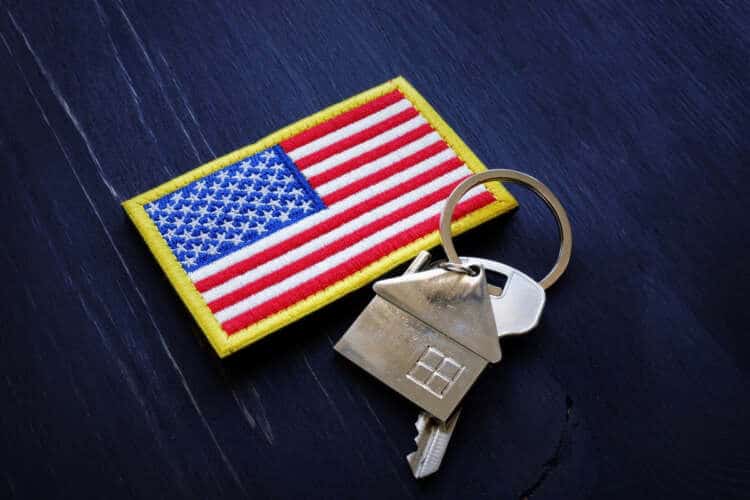VA Home Loans for Bad Credit
Updated: March 23, 2023
Unfortunately, meeting the military service requirements for VA home loan doesn’t mean you automatically qualify. You need an acceptable credit score and overall good financial health to qualify.
However, requirements around credit and overall financial health can vary by lender. Here we explain how to get a VA loan with poor or bad credit and how you can prepare for finances when applying for a VA loan.
Can You Get A VA Loan With Bad Credit?
FICO scores range from 300 to 850. Consumer credit reporting agency Equifax considers 300 to 579 as poor and 580 to 669 as fair. Borrowers in the poor category may have difficulty getting a VA loan, but it’s not impossible.
The VA doesn’t set credit score requirements, but lenders do. Most lenders want a 620 or higher, but 620 is not a universal benchmark.
Keep in mind that there are different credit reporting models, and lenders typically use a model unique to mortgages. Since lenders utilize a unique model, the credit score you receive from a free credit report or credit monitoring agency is likely different from what the lender sees.
Low FICO Scores and VA Loans
Not all borrowers will be eligible for a VA mortgage. Some credit scores are just too low for the lender to take a risk on. Even lenders who accept applicants below a 620 FICO often have additional requirements that impact the veteran’s ability to get a mortgage. For example, lenders may require additional cash reserves, have a lower acceptable debt-to-income ratio or even require a down payment.
Keep in mind that lenders use loan-level pricing adjustments (LLPAs). LLPAs adjust the mortgage rate positively or negatively based on risk – meaning if you have a 620 FICO, you’ll typically pay a higher interest rate than a borrower with a 720.
VA Lenders for Bad Credit
If you’re looking for a VA lender willing to work with bad credit, consider the following steps and tips to increase your chances of finding more favorable terms:
- Research VA-approved lenders: Start by researching VA-approved lenders known for working with borrowers with lower credit scores. Look for reviews or testimonials from other borrowers with similar credit situations to help identify potential lenders.
- Address credit issues: Before applying for a VA loan, address any outstanding credit issues, such as late payments, collections, or high credit card balances. Paying debts and maintaining on-time payments can help improve your credit score and demonstrate financial responsibility to lenders.
- Shop around: Contact multiple VA-approved lenders to discuss your situation and determine their credit requirements. If they accept a credit score below 620, ask what potential overlays they require to decide whether they’re a good financial fit for you.
- Consider a co-borrower: If you have a spouse or family member with a stronger credit profile, consider adding them as a co-borrower on the mortgage. A co-borrower may improve your chances of approval and help you secure better loan terms.
- Seek financial counseling: Many organizations offer free financial counseling services for veterans, which can help you improve your credit and financial situation. These services can guide budgeting, debt management, and improving your overall financial health.
- Be patient: Building the credit necessary for a mortgage can take time if your score is very low. Give it time and take steps that will positively position your financial future.
Rebuilding Credit
Rebuilding credit can be more difficult than starting from scratch, but don’t let that deter you from improving your financial future and ability to get a VA loan.
Positive steps you can take to improve your credit score include:
- paying down debt
- paying bills on time
- keeping your credit card balances low or near zero
- opening a secured credit card or becoming an authorized user on another individual’s card
Remember that you likely don’t want to close any credit accounts, as that will reduce your amount of available credit and can negatively impact your score.
Bankruptcy and Foreclosure
Bankruptcy or foreclosure can play a major role in your ability to get a VA loan with bad credit. According to Debt.org, individuals who’ve experienced bankruptcy can lose anywhere from 130 to 240 points from their FICO score.
Additionally, mortgages, including VA loans, have a mandatory waiting period before you can apply for a new mortgage. The waiting period may vary depending on the nature of the proceeding, the lender’s standards, state law, and other variables. However, the waiting period for VA loans pertaining to bankruptcies, foreclosures and short sales is typically 12 months to two years.
While obtaining a VA loan with bad credit can be challenging, it is still one of the best options available for those with less-than-perfect credit profiles compared to other mortgage options.
Most Popular VA Loans and Mortgages Articles

VA Home Loan Guide

VA Loan Calculator

How to Refinance a VA Loan

VA Loan Certificate of Eligibility (COE)

2024 VA Loan Limits by County

Best VA Loan Lenders































































